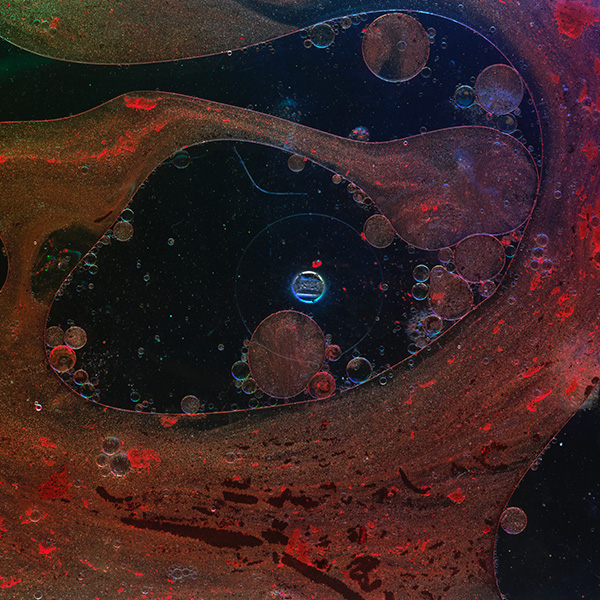Key Benefits
- Confirm autoimmune thyroid disease with TPO/Tg antibodies and assess thyroid function.
- Spot early thyroid imbalance before symptoms worsen using TSH and Free T4.
- Clarify fatigue, weight gain, hair loss, or cold intolerance by linking labs to symptoms.
- Guide levothyroxine need and dosing based on TSH/Free T4, informed by antibodies.
- Protect fertility and pregnancy by flagging autoimmunity that increases miscarriage and hypothyroid risk.
- Track disease course by monitoring TSH and Free T4 after any dose changes.
- Flag higher risk for future hypothyroidism when TPO/Tg antibodies are present.
- Best interpreted together: antibodies show autoimmunity; TSH and Free T4 show function.
What are Hashimoto’s
Hashimoto’s biomarkers are biological signals that show two things: the immune system is targeting the thyroid, and how well the thyroid is still doing its job. Autoantibodies against thyroid proteins (thyroid peroxidase antibodies, TPOAb; thyroglobulin antibodies, TgAb) reveal an autoimmune reaction aimed at the cells that make thyroid hormone. Hormone and regulatory markers (thyroid-stimulating hormone, TSH; free thyroxine, free T4; sometimes triiodothyronine, T3) reflect the gland’s output and the brain’s feedback control via the pituitary. Together, these markers map the disease process: immune activity against the gland, the remaining hormone-making capacity, and the stress placed on the feedback loop. Tracking them helps identify autoimmune thyroiditis early, distinguish it from non-autoimmune thyroid problems, and monitor whether the thyroid is maintaining adequate hormone production over time. In short, Hashimoto’s biomarkers translate a hidden immune attack into measurable signals and pair them with functional readouts, enabling timely diagnosis, risk assessment for future underactivity, and informed decisions about monitoring and care.
Why are Hashimoto’s biomarkers important?
Hashimoto’s biomarkers show how the immune system and thyroid axis are interacting across the body. Antibodies (TPO Ab and Tg Ab) reveal immune targeting of thyroid tissue, while TSH and Free T4 show how well the brain–thyroid loop is maintaining energy, temperature, heart rhythm, mood, and fertility.
For context, TPO Ab and Tg Ab are considered negative when below the lab’s cutoff; any elevation supports autoimmune thyroiditis, and higher titers predict greater risk of hypothyroidism over time. TSH is typically normal around 0.4–4, with physiologic “steady state” often in the lower-to-middle part of that range. Free T4 is best interpreted in the middle of its lab range. In pregnancy, TSH reference ranges shift lower by trimester to support fetal development.
When values are low, undetectable TPO Ab/Tg Ab suggest little to no ongoing autoimmune attack. A low TSH with normal or high Free T4 reflects a hyperthyroid signal or a transient “hashitoxicosis,” often felt as palpitations, tremor, heat intolerance, and anxiety; in older adults it can provoke arrhythmias, and in teens it may look like restlessness or sleep trouble.
When values are high, elevated antibodies indicate active immune injury; a high TSH with low Free T4 signals hypothyroidism—fatigue, cold sensitivity, constipation, dry skin, hair thinning, and slowed thinking—raising LDL cholesterol, menstrual irregularity, infertility risk, and slowed growth in children.
Big picture: these biomarkers connect immune activity to hormone supply, linking thyroid status to cardiovascular risk, metabolism, mood, cognition, bone health, and pregnancy outcomes. Tracking them over time clarifies trajectory and long-term risk, especially in people with other autoimmune conditions.
What Insights Will I Get?
Hashimoto’s biomarker testing shows how your thyroid-immune axis is affecting whole‑body systems—energy production, metabolic rate, cardiovascular risk, mood and cognition, temperature regulation, fertility, and immune balance. At Superpower, we test these specific biomarkers: TPO Ab, Tg Ab, TSH, Free T4.
TPO Ab (thyroid peroxidase antibodies) mark immune attack against the enzyme that enables thyroid hormone synthesis. Tg Ab (thyroglobulin antibodies) mark immune targeting of the hormone precursor protein. TSH (thyroid-stimulating hormone) is the pituitary signal that regulates thyroid output. Free T4 is the unbound circulating hormone precursor that tissues convert to T3. In Hashimoto’s, antibodies indicate autoimmune thyroiditis, while TSH and Free T4 reflect functional hormone supply and feedback control.
TPO Ab and Tg Ab: Higher or rising levels suggest active autoimmunity; lower or declining levels suggest a quieter process. Stability is best reflected by persistently low or stable antibodies over time. TSH: A stable, lab‑defined normal TSH indicates a steady hypothalamic‑pituitary‑thyroid set point. Elevated TSH, especially with low or low‑normal Free T4, signals insufficient thyroid output (hypothyroid pattern). Suppressed TSH with high Free T4 indicates excess hormone exposure or a transient inflammatory release phase. Free T4: Consistently normal values indicate adequate hormone availability; low values point to underproduction, which can impair energy, lipid handling, menstrual regularity, and cognition.
Notes: Interpretation varies with pregnancy (trimester‑specific ranges), age, acute or chronic illness (non‑thyroidal illness effects), medications (e.g., glucocorticoids, dopamine agonists, amiodarone), recent iodine or biotin exposure, and assay differences between labs. TSH has diurnal variation; repeat testing trends are more informative than a single value.







.avif)



.svg)





.svg)


.svg)


.svg)

.avif)
.svg)










.avif)
.avif)
.avif)


.avif)
.png)


